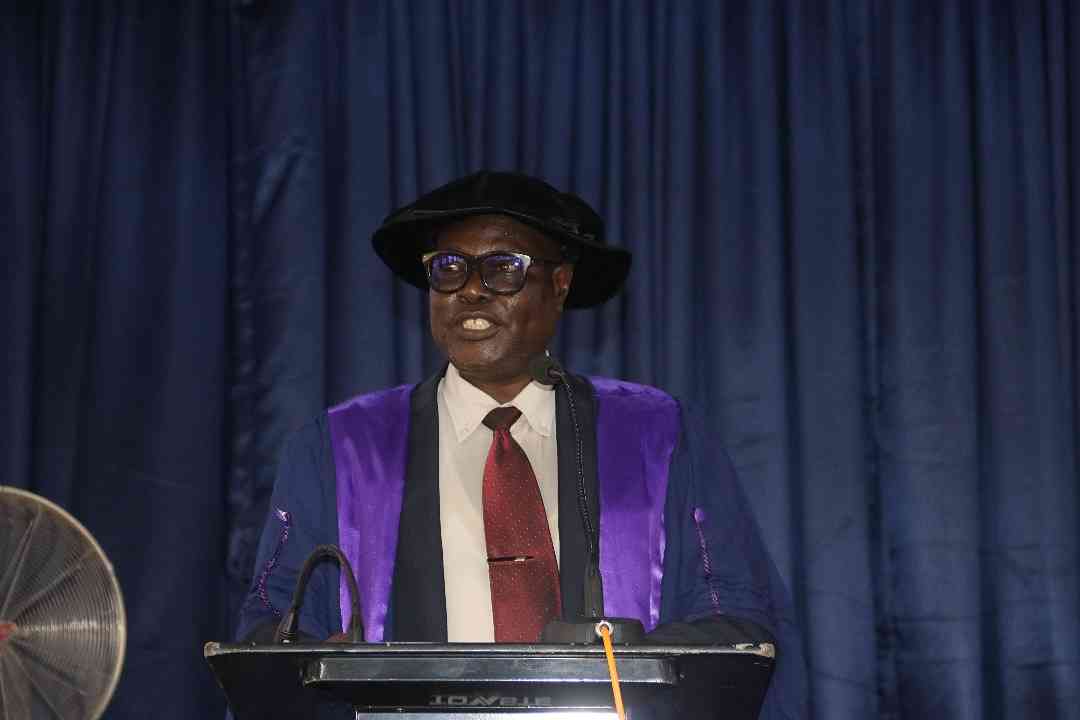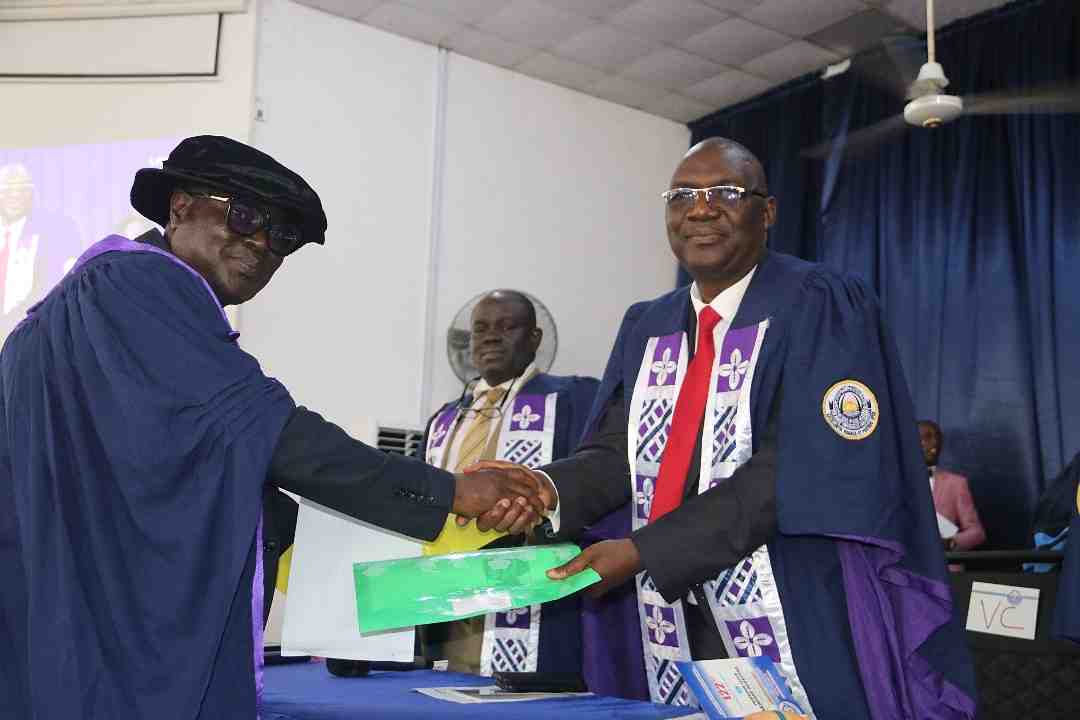
A Professor of Rheumatology at Olabisi Onabanjo University, Ago-Iwoye, Prof. Segun Akintayo Oguntona, has advocated the inclusion of medications for autoimmune diseases treatment in Nigeria under the National Health Insurance Scheme (NHIS). The medical expert, who bemoaned the high cost of managing rheumatology cases, said the government should look into the field of medicine and accord it the same priority attached to malaria and communicable diseases like tuberculosis and AIDS.
Prof. Oguntona made the call on Tuesday, 8th April, 2025 while delivering the 122nd OOU Inaugural Lecture at the Otunba Gbenga Daniel Lecture Theatre, Main Campus, Ago-Iwoye. The Lecture entitled, “Joint Diseases and Internal Organ Complications: Unmasking Immune Tolerance Breakdown As TheCulprit”, was chaired by the Vice-Chancellor of the University, Prof. Ayodeji Agboola, and graced by eminent personalities within and outside the University.
The Inaugural Lecturer, who is from the Department of Medicine, Faculty of Clinical Sciences, Obafemi Awolowo College of Health Sciences, Sagamu, lamented that funding remained the main problem denying patients with autoimmune conditions in Nigeria to receive best medical care. He noted that the situation was different in many Asian countries where patients enjoy free access to medical treatment.
According to him, autoimmune diseases represent a significant health burden seen in about 3% to 9% of the general population and affect both the rich and the poor.
The don highlighted the severe impact of rheumatologic conditions which, according to him, can lead to kidney and heart failure, blindness, lung defects, skin lesions and other complications. He, therefore, tasked the government to include medications for the disease treatment in the NHIS, especially because of its expensive cost of management.
Prof. Oguntona said, “The management of most rheumatology cases is expensive with the use of a group of drugs called biologics. Biologics are the most expensive drugs and they are the lifesaving medications for patients with autoimmune conditions.”
“The outcome of most of these diseases is relatively good in the Asian countries compared with what we see in this part of the world because of free medical treatment they enjoy as against patients paying out of pocket in a country like Nigeria.”
“People with health insurance coverage could not benefit from these biologics due to the fact that health insurance does not cover them because of their cost. One could imagine a dose of biologic drug costing over half a million. When you repeat the treatment in two weeks; how many people could afford this?”
The Inaugural Lecturer, who declared that autoimmune disease is not a respecter of social strata or class, stressed the need to urgently address the funding obstacle in its management.
“I would also advocate that the National Health Insurance Scheme should cover medications used in these diseases since it is difficult to pay out of pocket by many patients,” he added.

Describing rheumatology as a branch of medicine devoted to the evaluation of musculoskeletal disorders and connective tissue diseases, including arthritis and soft tissue lesions, Prof. Oguntona explained that its manifestations are not limited to the joint and soft tissues but can also manifest on the skin and internal organs such as the brain, lung, heart and kidney.
“Some medical practitioners find it difficult to differentiate what cases to be seen by the rheumatologist and the cases to be attended to by the orthopaedic surgeon. Non-traumatic joint diseases are in the exclusive purview of the rheumatologist while traumatic diseases are to be managed by the orthopaedicsurgeon,” he clarified.
“However, non-traumatic diseases that need surgery for different reasons such as non-relenting pain and correction of joint deformities are referred to the orthopaedic surgeon,” the specialist pointed out. Speaking further, the medical expert described the concept of autoimmunity as antibody formation against the body and attacking self-tissues. His words: “Antibodies are the soldiers of the body that protect the body against foreign invaders. Normally, these antibodies tolerate cells of the body by not attacking them. This is referred to as immune tolerance.’’
“When the antibodies are unable to tolerate the body cells and tissues (antigens) again, then the antibodies begin to attack the body not recognising that they are part of the body. In this situation, the term autoimmunity is used.
“The body immune system is designed to accurately identify potential sources of harms to the body. Failure to do this means that they will fail to mount an appropriate protective response to the threat posed by the invading organisms and the host therefore rapidly succumbs to the organism.”
Prof. Oguntona, who regaled his audience with how he found himself in the sub-specialty of medicine, however, decried the dearth of specialists in the field, noting that Nigeria currently has only one paediatrics rheumatologist trained in the last two years.

